
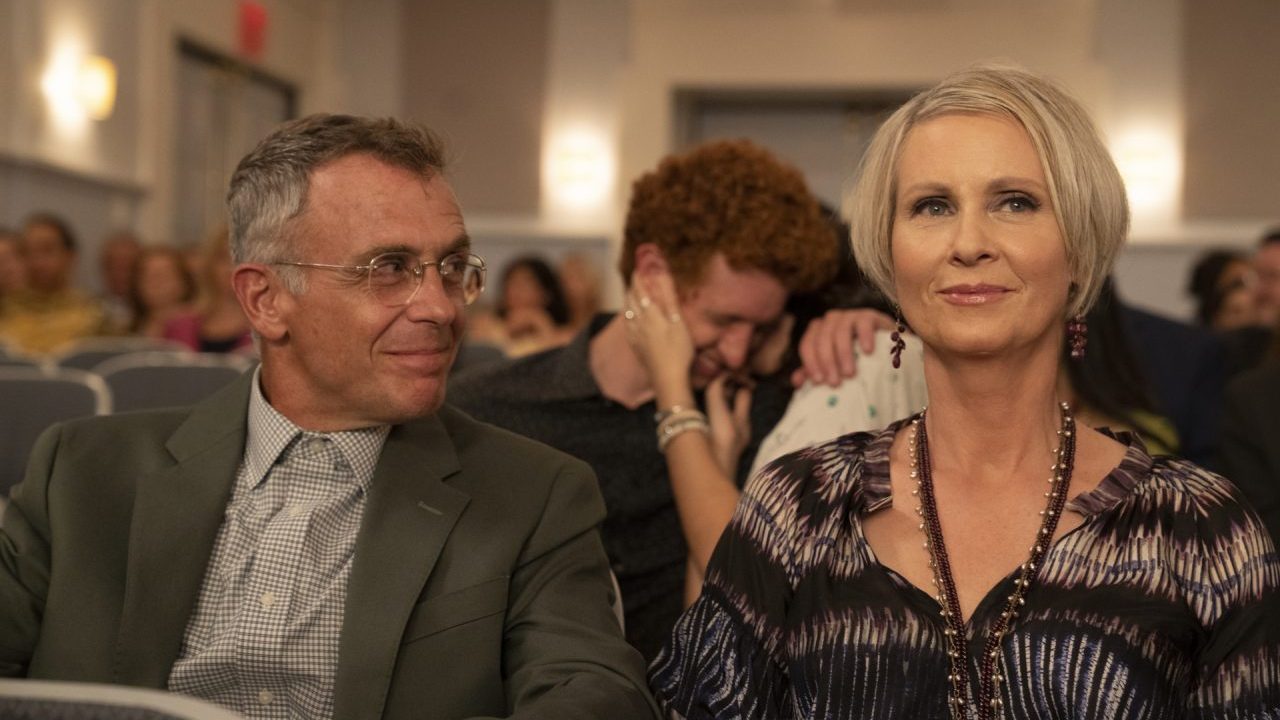
Spoilers ahead for Episode 8 of And Just Like That…
Well, the moment we’ve all been dreading has arrived. On this week’s episode of And Just Like That, Miranda (Cynthia Nixon) finally tells her loving, partially deaf husband Steve (David Eigenberg) that she’s been having an affair with non-binary stand-up comedian Che Diaz (Sara Ramirez) and wants a divorce.
No one is happy about this development. I mean, except for Miranda and Che, I guess. But even that seems highly questionable. I mean, does anyone really believe that Miranda’s mid-life crisis rebound relationship with a perpetually stoned comedian is headed for a happy ending? From Miranda’s slightly manic spiel about living in a romantic comedy as she spontaneously heads off to surprise Che in Cleveland at the end of the episode, to Che’s assertion that they cannot offer Miranda anything “traditional” (read: monogamy is not an option), to the way showrunner Michael Patrick King loves to humiliate these characters, everything about this storyline makes me pretty confident that our girl is in for a profound disappointment. (Sidebar: Did Miranda just, like, peace out leaving Steve to break the news of their impending divorce to their son?)
But the most devastating part of the Miranda and Steve and Che love triangle is unquestionably poor Steve’s post-mortem on their 21-year relationship. “You and me, we’ve been together for a long time, and it’s always been like this,” he tells her. “You don’t think that I’m enough, then I’m kind of enough, and then I’m not enough again? And I’m always there, you know, hangin’ in there for us.” Ouch.
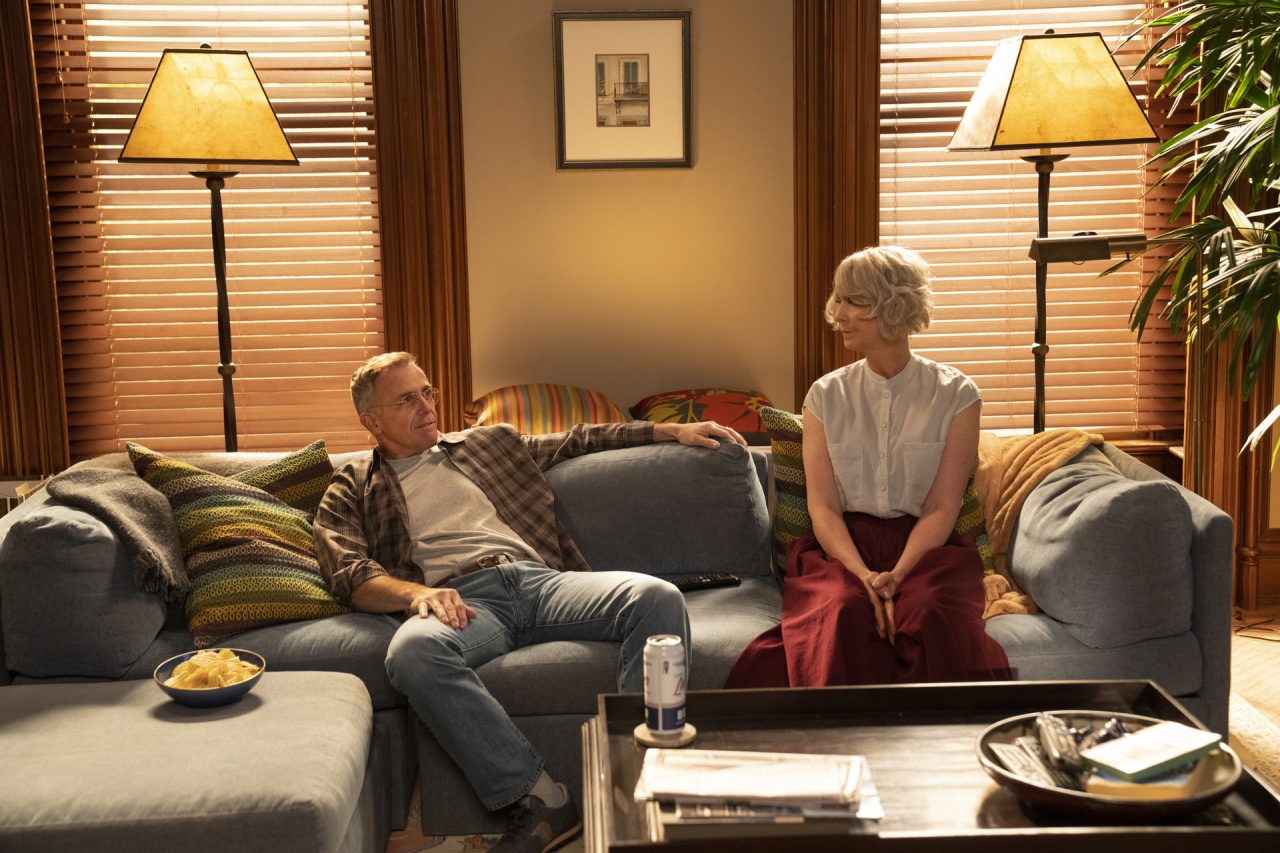
Steve has been a fan favorite almost from the moment the character was introduced in Season 2, and he and Miranda quickly became arguably the most rooted-for couple on Sex and the City. While fans debated whether Carrie should end up with Mr. Big or Aidan, no one really ever questioned the fact that Miranda and Steve were meant to be. He was just so adorable and sweet and seemed to provide the balance that a Type-A alpha female like Miranda needed in her life.
But given Steve’s take on their relationship, maybe it’s worth reconsidering what we thought was one of Sex and the City’s great love stories.
From the start, their relationship was contentious. They met in Season 2, when Carrie stood Miranda up at the bar where Steve was slinging drinks. The two traded verbal barbs before hitting it off; Miranda took Steve home for what she thought was going to be a one-night-stand. Except that for some reason, Steve was really into this ridiculously hostile lawyer lady. Miranda, meanwhile, seemed poised to repeat the pattern she’d played out in Season 1 with Skipper (Ben Weber): driving away a sweet, goofy guy who adored her with her withering disdain. But she decided to give Steve a chance, and they dated for a while, until their vastly differing socioeconomic statuses—he was a bartender from Queens; she was a wealthy corporate lawyer—came between them.
And this, as Sex and the City lore goes, is where their romance was originally supposed to end. But Steve proved so popular with the show’s audience that MPK and co. brought him back at the end of the season, when he and Miranda start sleeping together semi-casually. From a television-making perspective, this was a no-brainer. You’ve got a charismatic pair of actors with chemistry? The fans want to see more of them together? Of course, you bring Steve back! Plus, the Miranda-Steve pairing grounded what was often an over-the-top show in a fairly recognizable reality. They provided a contrast to the impossibly glamorous lives of the other characters, while their own personalities and background contrasted in interesting ways.
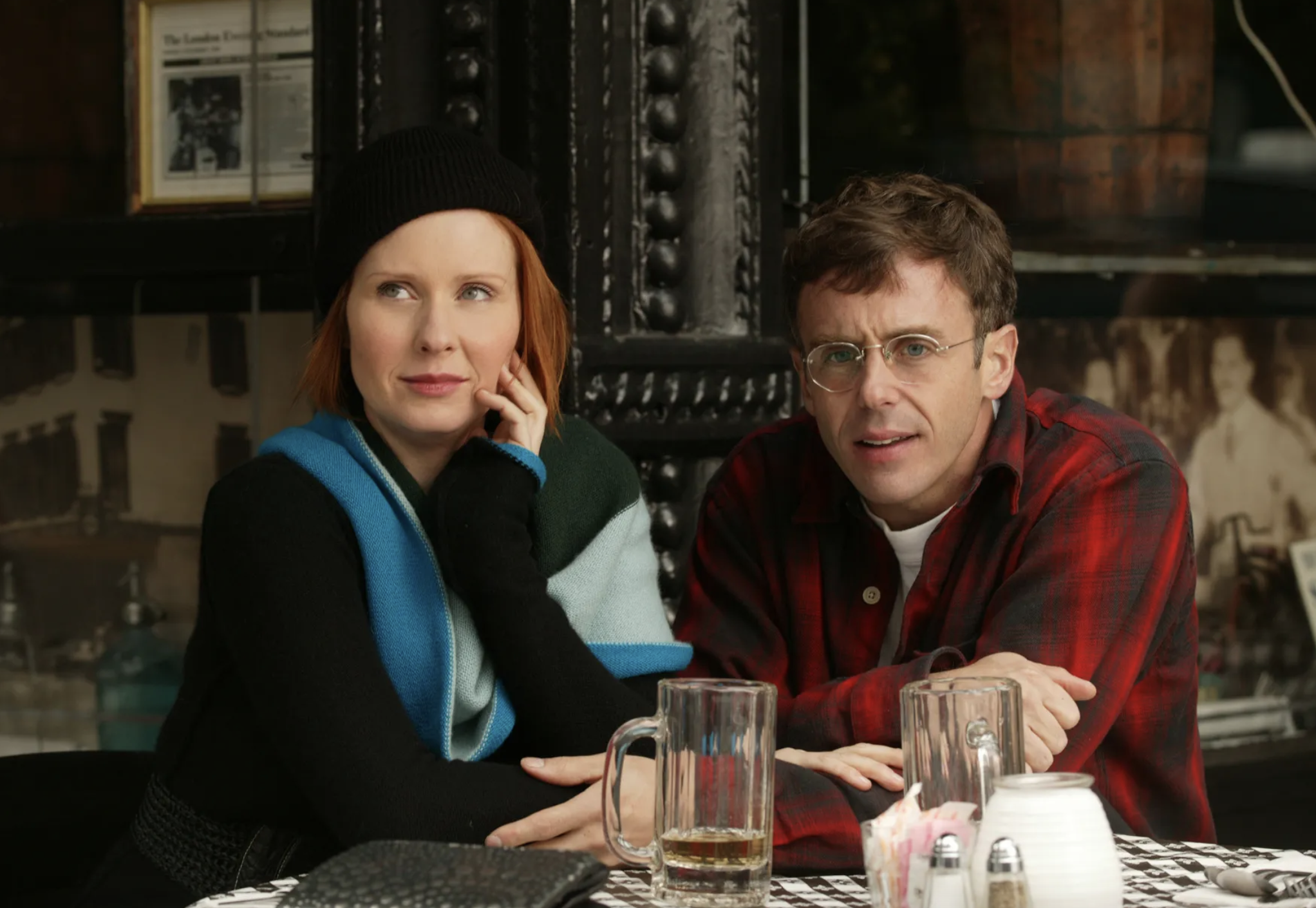
But did they make sense as a couple? This seemed to be the thrust of their storyline in the first half of Season 3. As they got more and more serious—they got back together officially, Steve moved into Miranda’s apartment—their differences became more and more apparent. Miranda was ambitious; Steve was happy just tending bar. Miranda was a work-a-holic; Steve just wanted her to hang out and watch cartoons on the weekends. When Steve started pressuring Miranda to have a baby when she clearly didn’t want to be a parent, it became clear that however much they loved each other, they couldn’t reconcile the fact that they wanted different things.
Maybe Steve and Miranda’s story should have ended here. Their relationship seemed to have run its course and they ended things on a mature, reasonably amicable note. It was sad, but satisfying. But serialized television, like life, rarely wraps up so neatly. The show continued to bring Steve back into Miranda’s life in ways that did mostly make sense for two people who had mutual friends as well as a romantic history. They remained friends and would occasionally sleep together. Then she got pregnant and kept the baby for some reason, and so they had to co-parent until some combination of single mom stress and parent pheromones (I don’t know, I’m not a scientist!) and fan-service led Miranda to the conclusion that she was in love with Steve, and they got married.
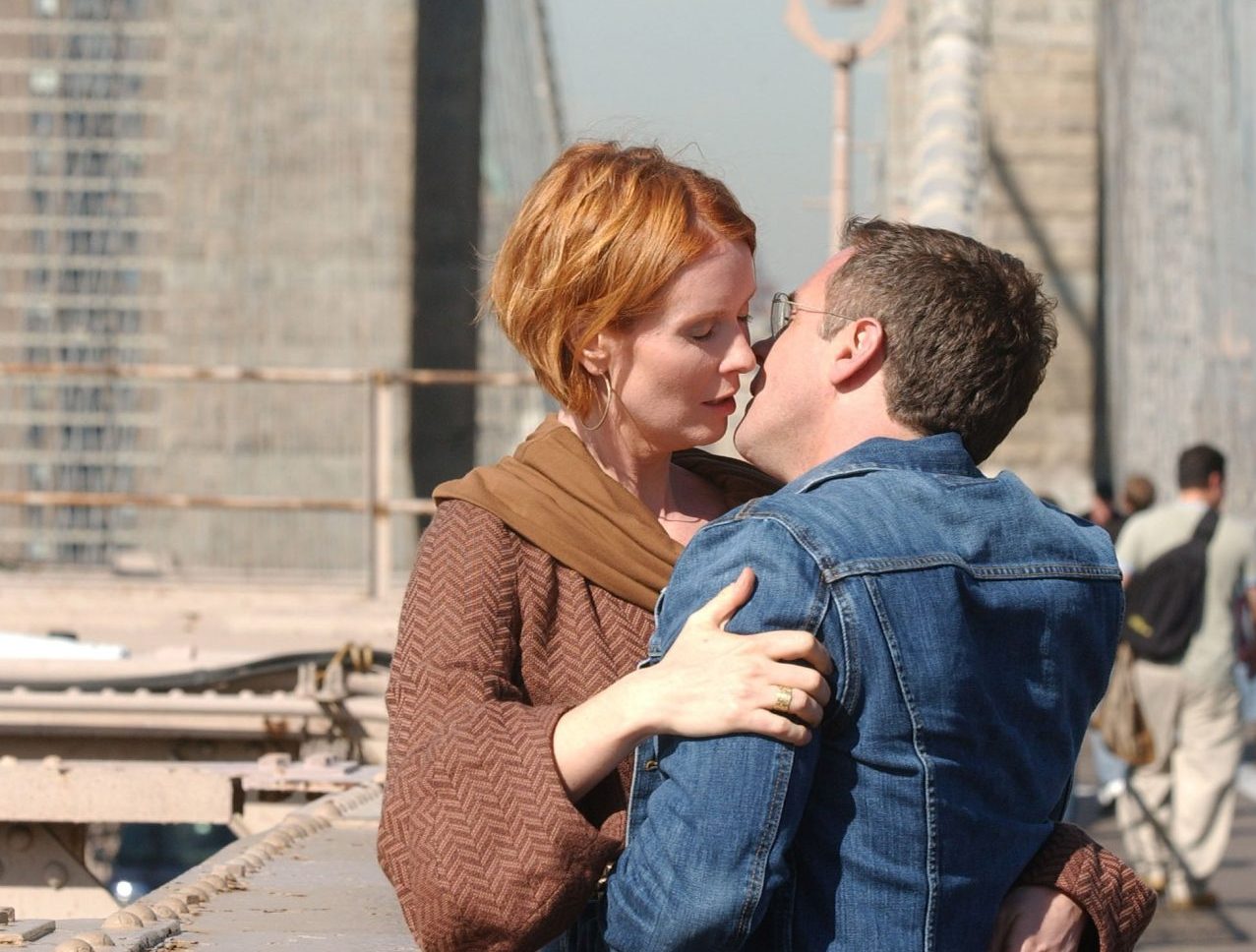
Looking back on Miranda and Steve’s history on Sex and the City, I realize that my beef is not with the fact that the show kept bringing them back together, but rather that it kept trying to sell us on their happily-ever-after. By its final season, the show had devolved from a gimlet-eyed satire of the dating rituals of Manhattan’s elite to a full-on romantic comedy. As such, it had no choice but pair off its heroines with the men of their dreams. Which would have been fine if MPK and co. didn’t continue to exhume the series in two cringe-worthy movies and once again in And Just Like That. As almost every character on Sex and the City would have probably told you in 1999, happily-ever-after isn’t a thing. And it only works in stories if they actually come to an end. The franchise kept throwing crises at Miranda and Steve while also insisting that they remain together, a status quo that increasingly defied credibility.
The reason people are having such a hard time with Miranda’s storyline in And Just Like That is because they love these characters—they love Miranda and Steve together. They want to believe in their happily-ever-after. But the truth is, if you want more of the story, you have to accept that things continue to change, and not always for the better.
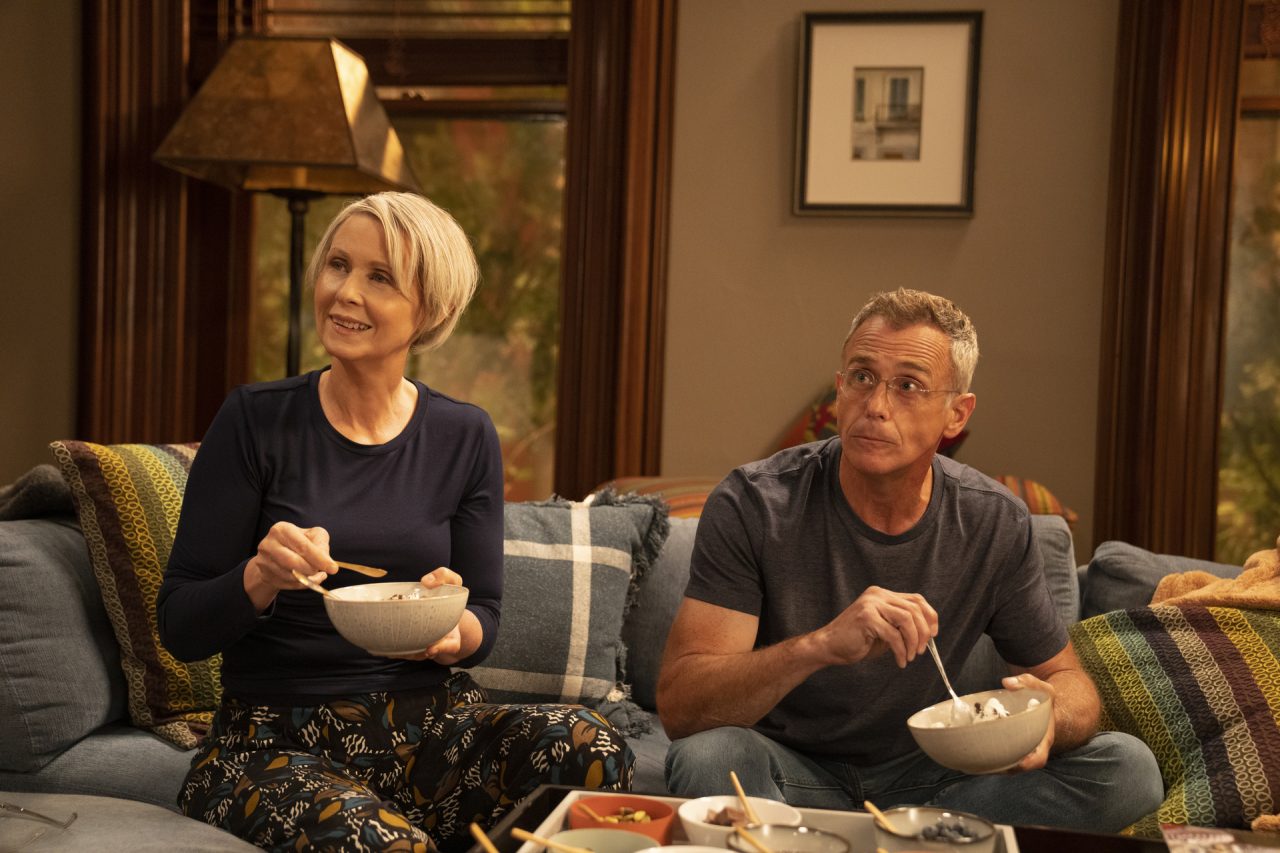
It is certainly not a stretch to believe that Miranda would find herself unhappily married to Steve and living reluctantly in Brooklyn. As Steve himself points out, the character we’ve known all these years has always been a little ambivalent about him. In fact, she was ambivalent about pretty much every major decision she made in the original series—from getting into a relationship with a bartender, to having a baby, to moving to Brooklyn—that got her to the place she is now. So many of those decisions were semi-coerced or based in fear: fear of being alone, fear of becoming too cynical, fear of never being a parent, probably even internalized homophobia. At almost every major turning point in the character’s six-season journey, Miranda went against her nature, choosing the surprisingly more conventional path. When you really think about it, of all the characters on Sex and the City, she’s the one who bowed most to society’s expectations of women. It makes total sense—especially when you consider the year and a half, give or take, that she presumably has spent isolating in her home with Steve and Brady, reevaluating her life like so many of us—that Miranda would begin to realize how dissatisfied she is with the life she’s made.
And so, here we are, with two more episodes of And Just Like That to go and Miranda ready to blow up her life. I’m not particularly into it. None of us are. But I think I get it. I think, despite how it makes us feel, it is, after all, an earned development for the character. But I also think that, once again, Miranda is making a rash decision based on fear: fear of getting older, fear of boredom, fear of the slow, inevitable march toward the grave. I find it hard to believe that this decision is going to work out any better than any of the others she’s made over the past two decades.














